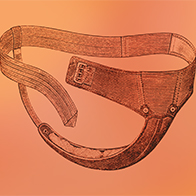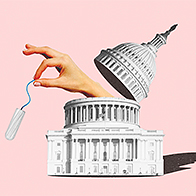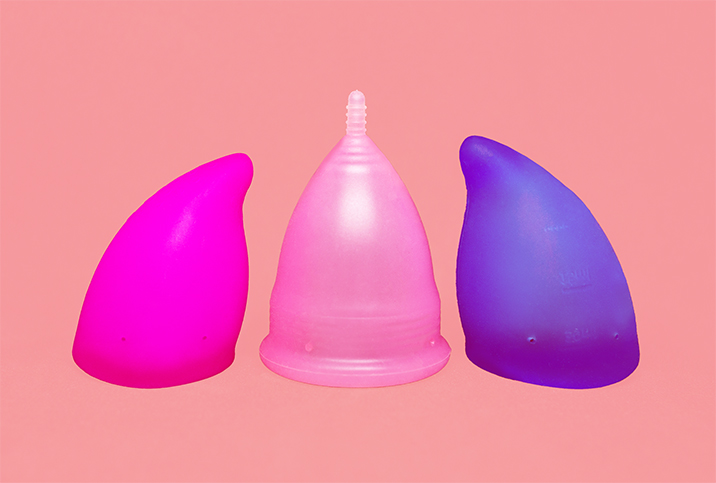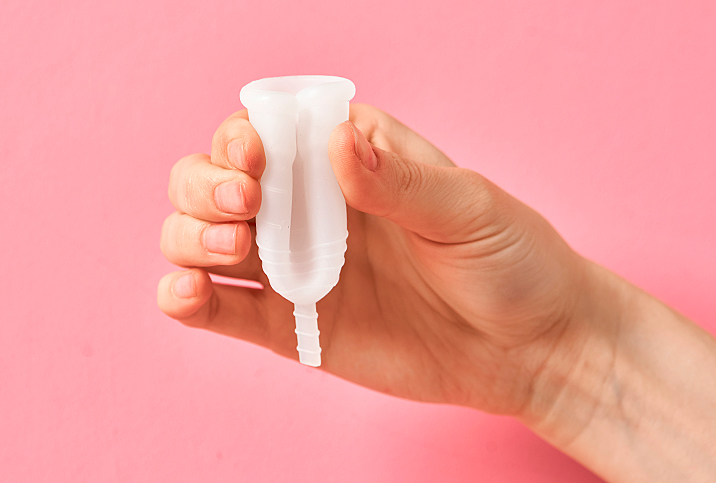It's True: Your Period Products Are Covered by HSA and FSA

Health savings accounts can alleviate tax burdens and help people save on medical expenses. Flexible spending accounts (FSA) and health savings accounts (HSA) allow people to set aside money for healthcare-related costs such as copayments.
But many people don't realize they can also use their FSAs and HSAs to cover menstrual products. The federal government's CARES Act legislation reclassified menstrual products as "medical care" in 2019, meaning these accounts cover period-related items.
Research indicates Americans hold about 460,000 FSA accounts and 32 million HSA accounts. One in 5 people in their 30s have an HSA account, according to a 2021 survey, but HSAs are gaining traction across every age group and in all 50 states.
With inflation rising, the majority of Americans live paycheck to paycheck. According to a YouGov survey, nearly half (49 percent) of Americans in 2022 are ill-equipped to cover a $400 unexpected expense.
Menstrual products can be yet another burden for families to afford each month.
Behind the change
The list of products and services that FSAs and HSAs covered, including aspirin, sunscreen and condoms, did not include menstrual products until 2020. The change marked a victory for menstrual equity and is covered by Section 3702 of the CARES Act.
"It's my firmly held belief that institutional ignorance—by this, I mean an unwillingness to consider or learn about women's health—is the only reason menstrual products were previously excluded from HSA/FSA-covered products," said Suzanne Herman, a New York City lawyer working with Period Law.
Herman explained that even though the Food and Drug Administration (FDA) classified tampons as a medical product in 1980, the IRS disagreed, arguing that because menstrual products do not treat a specific illness, they should not be included—unlike condoms, which the IRS stated were an essential healthcare item.
"The U.S. House of Representatives passed a bill to include menstrual products as FSA- and HSA-approved items in 2018, but the Senate never brought it up for a vote. Then, aiming to save money for businesses and individuals impacted by COVID-19, Congress passed the CARES Act in June 2020. The stimulus package language made menstrual products medical necessities within the Internal Revenue Code," Herman explained.
Due to the change, people can purchase a variety of menstrual products, including tampons, pads, liners, period underwear, menstrual cups, pain relievers and pain relief devices, through their HSAs and FSAs.
"Nothing has fundamentally changed about menstrual products; they are simply being recognized as the necessities they always have been," Herman said.
The change primarily helps employed individuals, because of the nature of how FSAs and HSAs work.
"My guess is that this most significantly helps single-earner families with more than one menstruating person in the household. For them, spending pretax dollars on a necessary monthly item at the peak of inflation is a huge saving," Herman explained.
"Also, the change is institutionally very helpful. It is a change in definition that signals the medical necessity of these products that we hope will lead to broader tax reform for menstrual products overall," Herman continued.
The CARES Act does not affect sales tax on period products—informally known as the "tampon tax"—but it allows for tax-free income to purchase products through FSA or HSA funds. Almost half of U.S. states, 23, still charge sales tax on period products.
The reclassification also does not mitigate period poverty, which is a lack of access, or inequitable access, to menstrual products, education and resources, explained Lacey Gero, M.P.H., the policy coordinator at Alliance for Period Supplies, based in Connecticut.
"We know that this change only helps insured and employed people, leaving out the poorest people who menstruate," Gero said.
Qualifying for an HSA or FSA
"To qualify for an HSA, you must have a high-deductible health plan. The HSA belongs to the individual, not the employer, and any eligible individual may open an HSA. As long as you are covered under a High Deductible Health Plan [HDHP], you may open and contribute to an HSA," Herman explained.
Most full-time employees with employers that offer health insurance can enroll in an FSA, and employees do not need to enroll in health insurance to qualify for an FSA.
One distinction between these accounts is that FSA funds typically do not roll over into the following year, whereas HSA funds do.
"With an HSA, the money you save always stays with you. You can only spend money you've already saved," Herman said.
'Menstrual products are being recognized as the necessities they always have been'
"An FSA is like a line of credit. For example, if your account balance is $50 in January, but you'd like to buy a $200 pair of prescription eyeglasses, you can as long as you're on track to save at least $200 by the year's end. However, any money you don't use by the end of the year does not roll over," Herman explained.
Gero recommended that if you have money left in an FSA at the end of the year, consider using the funds for menstrual hygiene management supplies, either for you or someone else.
"We encourage you to purchase period products and donate them to nonprofits working to end period poverty or anyone experiencing period poverty," Gero suggested.
Ongoing challenges
Some FSA and HSA users don't like having to pay up front for period products, file for reimbursement and then receive the reimbursement later. The change is still relatively new, and some customer service representatives are unaware that period products are now reclassified.
"I like getting reimbursed for menstrual products, but I don't like having to pay first for a reimbursement later," said HSA/FSA user Martha de Jesus, from the Bronx in New York City.
"Many retailers haven't updated the codes to allow for [an] HSA/FSA card to pay directly for menstrual products like they do for other things," de Jesus continued. "There is an [FSA] online store that lets you use it this way, but the prices are higher. So I can either get a good deal and wait for reimbursement or buy the same thing at a higher price to pay directly. I wish that would change."
Advocates note that reclassifying menstrual products as a medical expense took years of lobbying. Removing the tampon tax and continuing the fight against period poverty are next on the agenda.




















